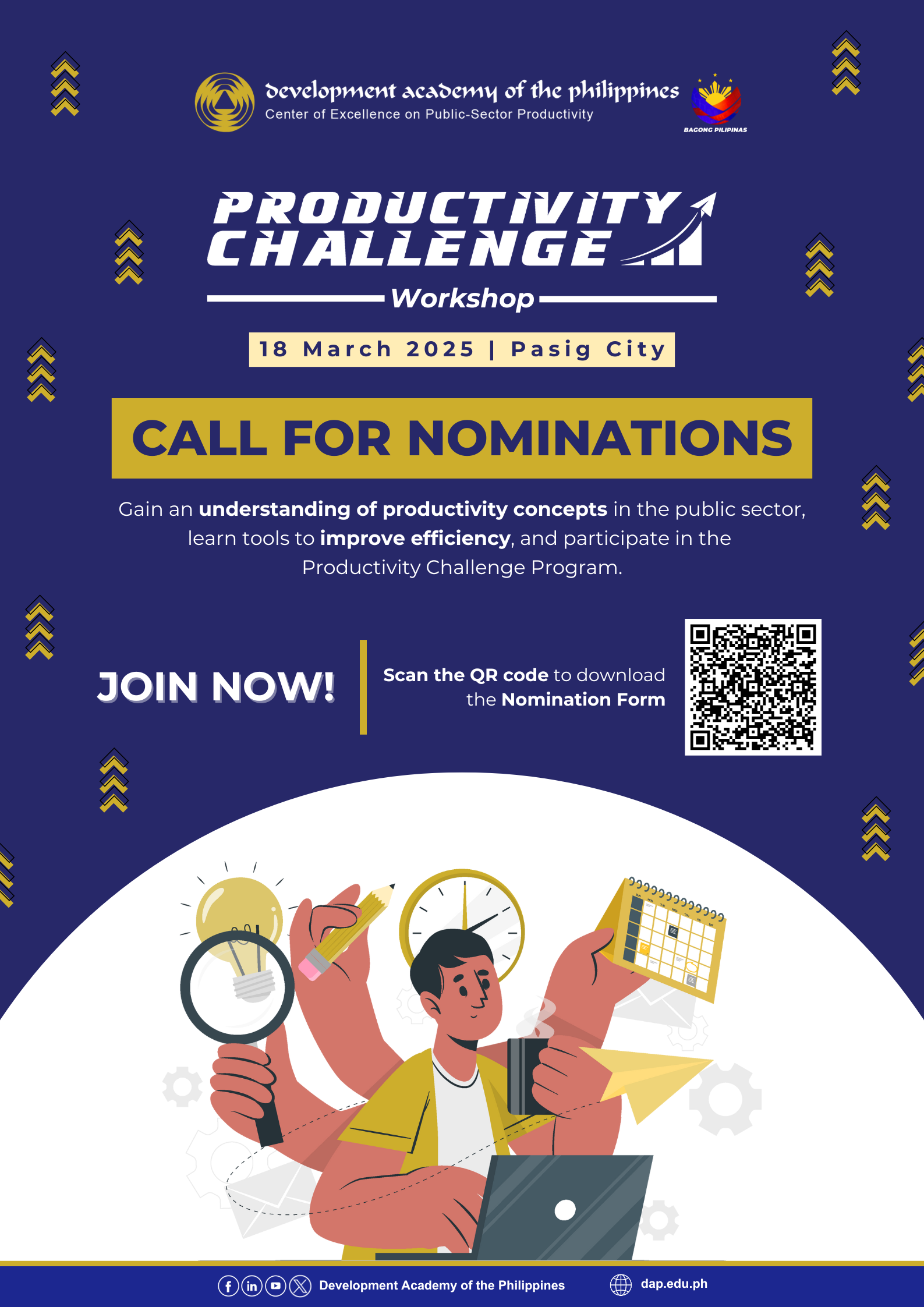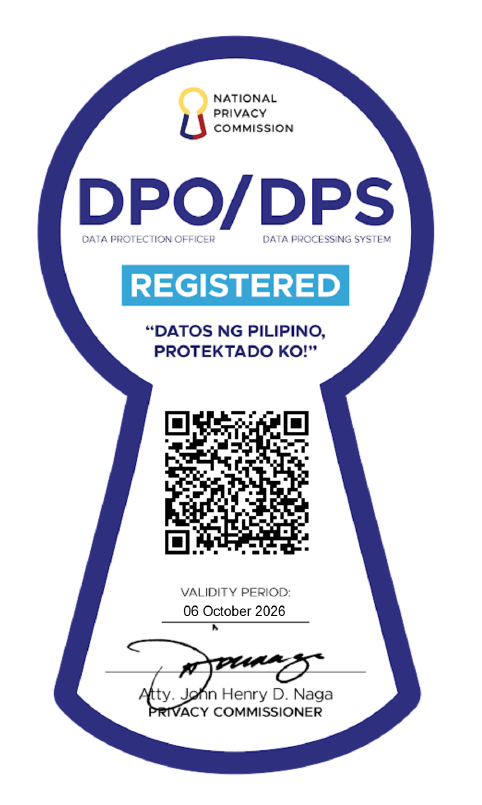The Development Academy of the Philippines (DAP) through its Productivity and Development Center (PDC) formally launched the 2019 Forum on Industry Regulatory Review on Education, Insurance, Mining, Non-Bank Intermediaries, and Water Utility Industries last May 15 at the Crowne Plaza Manila Galleria in Quezon City. The forum is part of the Modernizing Government Regulations (MGR) Program of DAP in partnership with the National Economic and Development Authority (NEDA).
DAP President and Chief Executive Officer Engelbert Caronan, Jr., in his welcome remarks, said that the MGR program is part of the Academy’s overarching strategy to make the bureaucracy responsive to the needs of the times.
“Of all the interventions that the DAP do in the bureaucracy, the MGR Program is one of the more effective, long-term, and institutional solutions,” he said as he emphasized that the administrative and regulatory bodies are supposed to be enablers.
Meanwhile, DAP Vice President Arnel Abanto presented the objectives of the MGR program. He said the program seeks to enhance capacity of agencies to deliver regulatory services, identify measures to reduce unnecessary regulatory burden on specific industries, and develop mechanisms that would make regulations more relevant and coherent.
Through the program, DAP is developing a regulatory management system standard which will be submitted to the Bureau of Philippine Standards (BPS) so it can be considered as a national standard.
In line with the government’s efforts to address issues relating to ease of doing business, DAP have conducted training and institutional capability building initiatives on smart regulation. Mr. Abanto pointed out that it is now a requirement for agencies to conduct regulatory impact assessment before any regulation may be proposed for implementation.
In his report, Abanto mentioned that 116 agencies out of 146 government regulatory agencies have participated in Regulatory Impact Analysis (RIA) training conducted by DAP. In the succeeding years, the program will include LGUs and legislative bodies. Also, 104 agencies have been covered by the industry regulatory reviews conducted by DAP from 2016 to 2018.
Abanto also shared some of the key recommendations of the past regulatory review presented at the forum which included simplifying procedures and requirements, provision for free registration for all new businesses, lowering the level of requirements from licensing to registration for certain industries, and extending validity of permits and licenses from one year to at least three years.
In his presentation on regulatory situation of the mining industry, Executive Director Ronald Recidoro of the Chamber of Mines of the Philippines, said that the Philippines, being located in the Pacific Ring of Fire, is both blessed and cursed as it is prone to a lot of natural calamities, with tectonic plates moving constantly and pushing valuable minerals from underground to the surface.
“In 2016, the mining industry produced PhP176 billion worth of minerals contributing PhP81 billion to the Philippines’ gross domestic product,” he added, emphasizing that mining activities are currently limited to 13 provinces, namely, Benguet, Zambales, Nueva Vizcaya, Palawan, Masbate, Eastern Samar, Leyte, Cebu, Agusan del Norte, Surigao del Norte, Surigao del Sur, Dinagat Islands, and Compostela Valley.
He further underscored that the biggest problem in maximizing the benefits of mining is policy uncertainty. “Since 2011, government hasn’t actively pursued investments in the mining industry, focusing instead on reviewing the fiscal regime for mining,” he added.
Recidoro stressed that despite the challenges they encounter in the mining industry, the government’s thrust towards industrialization and its “Build, Build, Build” Program will require a strong mining industry. As such, roadmaps and development plans have been developed and are continuously being crafted for the industry.
Before the closing of the forum, DAP Director Monica Saliendres shared the result of an initial survey given out at the start of the forum. The participants identified specific regulations that are most difficult to comply with and their suggested locations for industry dialogues and public consultations.
Ms. Carolina Velasco, Department of Trade and Industry-Competitiveness Bureau Division Chief, gave the closing remarks on behalf of Anti-Red Tape Authority (ARTA) Officer-in-Charge and Director General Ernesto Perez. She said that the ARTA is one with DAP in seeking to establish an efficient regulatory management system and in reducing regulatory burden and cost.
The forum was attended by 71 participants from the five focus industries intended for regulatory review this year.




